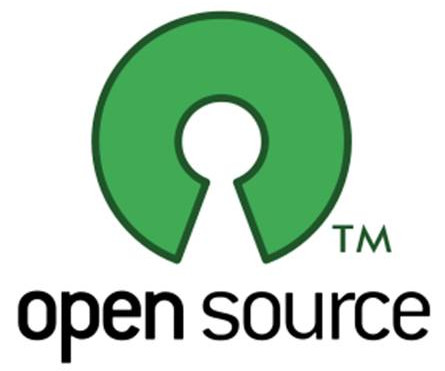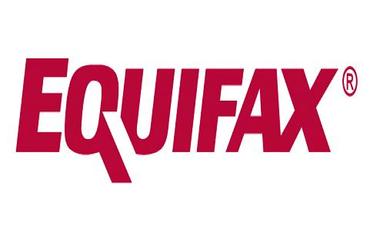| Previous
Page |
PCLinuxOS
Magazine |
PCLinuxOS |
Article List |
Disclaimer |
Next Page |
Short Topix: iOS Bootloader Leaked, ET vs BitCoin |
|
by Paul Arnote (parnote) I'm going to try out something a little different this month. Quite frequently, I stumble across little tidbits of information that are either interesting or helpful. But many of these tidbits don't have enough "depth" to warrant a full-blown article for the magazine. So instead, I thought I might try to round many of them up into a "catch-all" type of article. We'll see how this goes. It may (or may not) end up being a regular feature in the magazine. Or, it could end up being an every-once-in-a-while article. The next couple or few months should be sufficient to gauge whether or not this will pan out.  Is Mining For Cryptocurrency Interfering With The Search For ET? So many people are mining for cryptocurrency that they are snatching up all available GPUs (graphics processing units), so much so that researchers are having a difficult time procuring them for scientific pursuits. Most people -- you and me, for example -- typically think of gamers and users of high-end graphics systems as the prime "consumers" of the higher end GPUs. But then, we would be wrong. Nope. The cryptominers leverage the GPUs for the same reason that researchers do: their ability to analyze large amounts of data quickly. But the rising popularity of cryptomining has created a shortage of GPUs, as well as the accompanying price increases that typically goes along with things that suddenly are in short supply. So, researchers and data scientists are having considerable difficulties getting their hands on the GPUs they need to crunch the mountains of data they have to deal with. In the case of astronomical scientists, it's limiting the search for extraterrestrials, according to an article that recently appeared in a BBC report. For example, SETI wants to expand its operations at two of its locations -- one in West Virginia and the other in Australia -- but finds itself unable to do so because of the lack of available GPUs. SETI uses the GPUs to analyze radio frequency data to see if ET is sending out any sort of communications. Even though SETI has the money to purchase the GPUs that they need, they just are not available. With cryptominers buying them up as fast as they are produced, SETI just can't seem to get the tools they need. Hopefully, the "shortage" will be short lived, since some cryptominers are switching to using the new ASIC chip from Samsung and other chipmakers. Despite the arrival of alternate chip platforms, GPUs remain immensely popular with cryptominers, so the shortage may persist for some time to come.  iOS Bootloader Leaked To GitHub A GitHub user who goes by the name ZioShiba posted the iOS bootloader, called iBoot, to a repository on GitHub. Apple leveraged the DMCA (Digital Millennium Copyright Act) to have the repository taken down, and in the process, may have inadvertently confirmed that the code leaked was the "real McCoy." According to GitHub's DMCA takedown policy, the copyright owner must "conduct an initial investigation to confirm both that they own the copyright to an original work and that the content on GitHub is unauthorized and infringing." Thus, Apple must own the copyright of the code in order to have it removed. The code had been forked several times, so Apple also had to track those down and have them removed. Jonathan Levin, an author of books on iOS and MacOS, confirmed that the code "looked real," and matched the code that he has been able to reverse engineer. Meanwhile, Apple has stated that the release of the iBoot code will not affect security of hardware running iOS. It has also been reported by Motherboard (who also broke the original story) that not only was the iOS leak an "insider" job by a former employee, but that there is also additional iOS code that has yet to be widely leaked. The Cupertino folks may need to buy truckloads of Tylenol, as their headaches are just starting, if this is the case.  MPEG-2 Patent Expiration The last patent covering the MPEG-2 video codec expired in the U.S. on February 13, 2018. While this might not seem like a huge deal, it likely will turn out to be. MPEG-2's low processing overhead has endeared it to video buffs around the world. And this is despite the emergence of newer video codecs, such as H.264 and VP8. MPEG-2 is used as the encoder for ATSC broadcasts in the U.S. and South Korea, as well as DVB-T broadcasts in Australia, India, most of Europe, and Africa. This means that manufacturers of TVs, DVD/BluRay players, USB or PCIe tuners, and professional production equipment no longer have to pay MPEG-2 licensing fees to MPEG LA. Of particular note is the Raspberry Pi, which has built-in hardware support for MPEG-2 decoder. Currently, users have to pay a $3.36 (U.S.) fee to unlock the MPEG-2 capabilities on the Broadcom VideoCore IV graphics processor. It remains unclear if the makers of the Raspberry Pi will now offer this "key" to unlock the MPEG-2 hardware capabilities for free. Also, Linux distributions will now be free to include MPEG-2 support on their LiveDVD media.  Facebook's Onavo Protect VPN Collects Data On ALL You Do Ha! Just when you think that "privacy" on Facebook couldn't get any worse, it does EXACTLY that. Actually, the words "privacy" and "Facebook" don't even belong in the same sentence. Ever. It's so bad that Facebook is known to collect browsing information on people who are not Facebook users, and have never been Facebook users. Yes, Facebook's and Mark Zuckerberg's fortunes have been amassed on the backs of your private data, and by violating every aspect of your privacy. On its mobile apps, Facebook tries to dupe users into using the Onavo Protect VPN. If users click on the "Protect" page, they are redirected to the appropriate app store for the platform to download the Onavo Protect VPN client. Having purchased Onavo years ago, Facebook has now "weaponized" it to the point where it's a VPN in name only. Once installed, all network traffic is routed through Onavo's servers. It is there that everything you do on your mobile device is captured for Facebook's gain. It monitors and records every web page you visit, how long you spend there, every app you use and how long you spend using it, your location, your wifi information and just about everything else about your online presence.  Happy Birthday, Open Source (Definition) Roughly 20 years ago, the "official" definition of open source was created. Of course, that wasn't the beginning of open source software. But it is an important milestone. The whole idea of open source software can probably be traced back to 1983 and Richard Stallman's GNU Manifesto. But the definition of open source as we know it gained steam and evolved not only from Stallman, but also the Debian Free Software Guideline. Today, it is open source that is driving enterprise computing. Just imagine where we'd be today without Linux, GIMP, RedHat, LibreOffice, Apache, MySQL, PHP, Firefox, Kubernetes, and Android, among many, many others. An entire industry has grown up with open source at its core. Major companies, like Canonical, RedHat, Apple, Google, Facebook, and a whole host of others depend on open source.  Equifax Breach Worse Than Originally Reported Back in September 2017 came a report of the largest data breach of the year, and one of the largest of all time. Equifax, the credit reporting agency, had been hacked. The breach affected 145.5 million people, revealing their names, addresses, Social Security numbers, and dates of birth. But, it appears that we didn't get the full story of the breadth of data stolen. It seems that tax identification numbers, email addresses, and driver license information was also among the data that was stolen. It's unclear how many of the 145.5 million people are affected by the improper access to the additional data. A spokesperson for Equifax has stated that Equifax was fully aware -- and always has been -- of the data that was stolen. |


